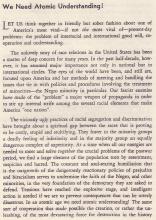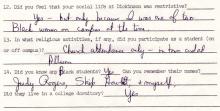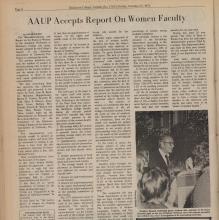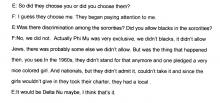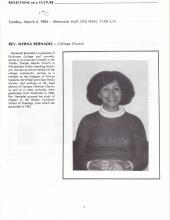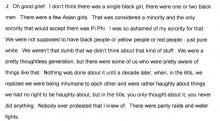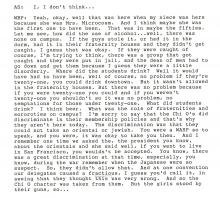"Personal Adventures in Race Relations : We Need Atomic Understanding!"
"Personal Adventures in Race Relations" by Esther Popel Shaw (class of1919), Dickinson's first African American female graduate, was published in 1946. It addresses the sources of prejudice and racism, and she urges in her introduction that cooperation is necessary to overcome these detrimental assumptions regarding African Americans. "At a time when all our energies are needed to meet and solve together the crucial problems of the postwar period, we find a large element of the population torn by resentment, suspicion and hatred.

